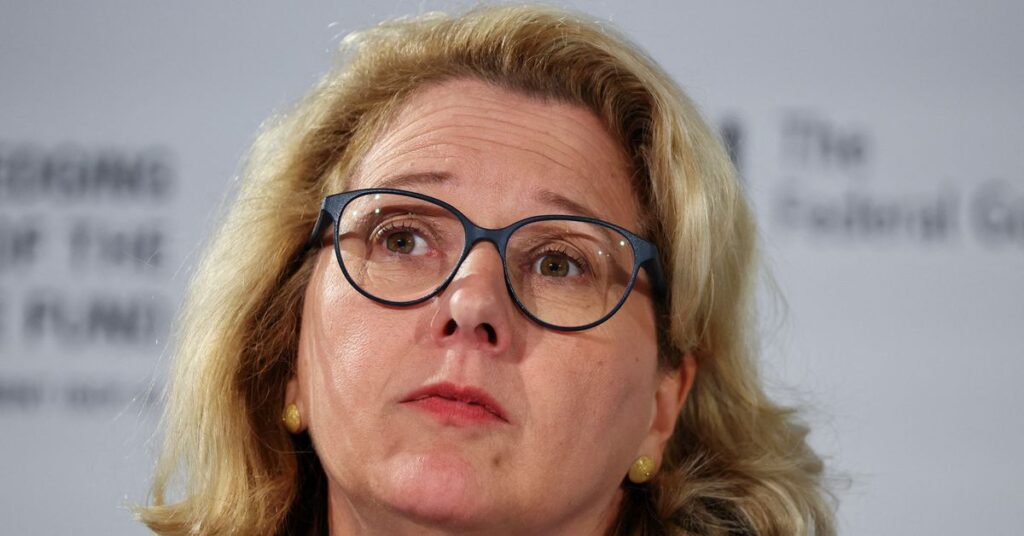[1/2]German Economic Cooperation and Development Minister Svenja Schulze reacts during a press conference in Bonn, Germany, October 5, 2023. REUTERS/Wolfgang Rattay/File Photo Acquire Licensing Rights
MARRAKECH, Morocco, Oct 12 (Reuters) – World Bank shareholders on Thursday endorsed further reforms and a new vision statement committing the multilateral development bank to work for “a world free of poverty on a liveable planet,” German Development Minister Svenja Schulze said.
The 25-member Development Committee agreed to a package of “ambitious reforms” that would increase the bank’s investments in climate action and sustainable development, Schulze told reporters at the annual meetings of the IMF and World Bank.
She said the changes, which she helped initiate last year with the United States, meant the bank would be able to offer stronger financing incentives for projects that have global, rather than just country-specific, benefits.
These included incentives focused on climate, biodiversity and pandemic prevention, she said.
“This is a really big success,” Schulze told reporters at the annual meetings of the International Monetary Fund and IMF.
“With the reform, we will make the World Bank into a better bank that uses its funds in a more targeted way,” she said. “The World Bank will be able to provide more funds for poverty reduction and climate action.”
The changes include new vision and mission statements which ensure that protecting vital natural resources is now a fundamental task for the bank.
World Bank President Ajay Banga, a former MasterCard CEO who took office in June, last month unveiled new proposals that would boost the bank’s lending to developing countries by an additional $100 billion over a decade, including a hybrid capital measure and a portfolio guarantee program.
Schulze said shareholders offered a broad endorsement of the proposals, and Banga was expected to follow up with specific targets in coming months.
The $100 billion included in a World Bank paper drafted for shareholders would come on top of measures approved in April that will boost the bank’s lending to developing countries by up to $50 billion.
Schulze said there are also changes to the Bank’s business model aimed at incentivizing investments in climate action, peacekeeping and pandemic prevention.
Loans with longer tenures or better terms would make it more lucrative for countries to invest in projects that are not just for their own benefit, such as protecting rainforests or preventing pandemics, she said.
The changes also call for clauses in loan agreements that would allow a country hit by a natural disaster to temporarily suspend its debt repayments. The World Bank would begin piloting this option for small states that are particularly affected by climate change, she said.
Shareholders also endorsed ways for the bank to increase its lending capacity, including through issuing hybrid capital – debt-like equity instruments that have a lower credit rating than more senior bonds.
Germany was the first country to provide 305 million euros ($322.6 million) of hybrid capital, which will allow the bank to mobilize an additional 2.4 billion euros over four years, she said, adding that France, Canada and the Netherlands had also signalled their intention to provide funds.
Schulze said the bank’s shareholders would push on to enact reforms and improvements at other development banks. “We want this reform to have a ripple effect,” she said.
($1 = 0.9454 euros)
Reporting by Andrea Shalal; Editing by Andrew Cawthorne, Jan Harvey and Mark Porter
: .


